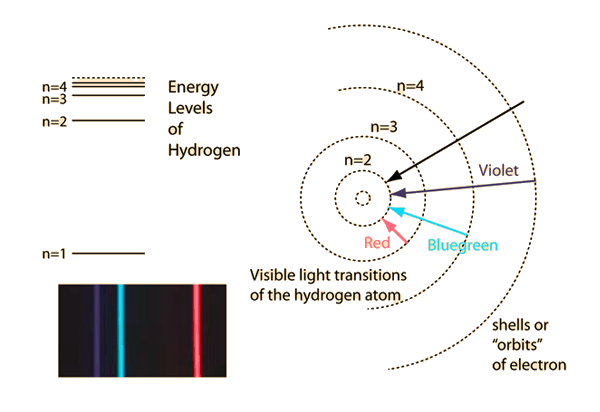To recap:
my claim is that the sort of spontaneous transitions that occur in quantum systems are a counterexample to the premise that "
Whatever changes is changed by something else
." In this post I want to consider some of the objections that were raised in the
discussion on Dangerous Idea.
The laws of quantum mechanics are the cause of the change. This objection can be dismissed easily. The question is what causes the change to happen at the particular time it happens. QM is silent on this question.
Further, in most philosophical views of physical laws, the laws have no causal efficacy. For instance, we might think of laws as just descriptions of the way things actually behave. But a description of how something happens is not a cause of it happening. So, the moon's orbit around the earth isn't caused by the law of gravity. It's caused by the actual gravity of the actual earth.
Finally, even if we think of physical laws as having some sort of actual existence and causal efficacy, well, the laws of QM exist right at the moment the electron is excited, so by this view the electron should immediately decay. In Aristotelian terms, we are looking for the
efficient cause: the thing that brings about the change at the instant it occurs. The laws of physics apply equally to all times; they can't be the reason something happens at some particular time.
(It seems to me that the laws of physics could be considered the
formal cause in Aristotelian language. But Feser says that modern philosophers have abandoned formal (as well as final) causes. Does anyone know if laws can, or cannot, be considered formal causes?)
It's a metaphysical premise that can't be contradicted by any possible set of observations. Feser's argument was that, if nothing actualizes the potential, then there's no reason for it to happen at one time rather than another. If this is the basis of the metaphysics response, then you need to somehow justify the idea that there is
always a reason for the change to happen when it does. To simply insist that there
must be a reason is to beg the question. (It seems that there might be an implicit appeal to the
Principle of Sufficient Reason here. Feser doesn't invoke it here, but later in the book he does mention it. But then you need a metaphysical defense of
that principle.)
Alternatively, one could argue that the principle follows simply from the
definitions of the terms "actuality," "potentiality," and "change." Now, I'm happy to admit that there are probably some definitions of those terms that allows one to deduce the principle from them. But then you are left with the question of whether those definitions have anything to do with the sort of changes we actually see in the world. Unless you're going to be content with a metaphysics that is completely divorced from the world of sense experience, you have to allow our observations to have some say about metaphysical principles.
Yours is just an argument from ignorance. Here the complaint goes something like this: "Just because quantum mechanics doesn't specify any cause for the decay to happen at that time, it doesn't follow that there
is no cause. It may be that there are causes of which we know nothing, and which aren't part of the theory of quantum mechanics."
This is a valid point. Just because quantum mechanics (more precisely, relativistic quantum field theory) is the most amazingly well-tested, most accurate, most far-reaching description of the universe that we have ever produced, we can't just conclude that it's the end of the story. Maybe quantum mechanics is incomplete - maybe there is some further, more precise, theory that will tell us about the causes of electron transitions and radioactive decay. (Or even, though such a theory might not be attainable, that there nevertheless
are such causes.)
This one requires a rather lengthy response. This very point was raised in a famous paper by
Einstein, Podolsky, and Rosen, who argued in 1935 that quantum mechanics
must be incomplete. Discussion of this important claim continues to this very day. An major advance came in 1964, when
John Bell showed that (under a very general set of assumptions) any attempt to "complete" quantum mechanics would end up making predictions that
differed from those of QM. This led to a series of experiments designed to look for such differences. The upshot: quantum mechanics has come out the winner in every test to date.
This is a long, complex, and on-going discussion. Fortunately, we can bypass the details. We don't need to make all of Bell's assumptions to see that
any additional "causes" added to quantum mechanics will result in violations of quantum mechanical predictions.
Let's suppose that there is some physical property - something not included in the quantum mechanical description - that determines for each atom exactly when the electron will decay. Call it property A. Since property A is a physical property, it must have some physical effect. If it has some physical effect, then it must be possible to separate out systems with one value of property A from systems with some other value. That is, we can use property A as a filter. (I'm borrowing this filter idea from the brilliant
Von Neumann.)
Applying this filter, we separate out a subset from our original set of identically prepared atoms. This subset, having a physical difference from the original set, will have a
measurably different set of physical properties. (If it doesn't, then there's no point in considering property A to be a real, physical property. If this "property" makes no measurable difference in the world, in what sense is it a real physical property?) Thus, this subset will violate the rules of quantum mechanics.
Now, I put it to you that the 100-year history of successful predictions of quantum mechanics
strongly suggests that there are no such additional physical properties. To call this an "argument from ignorance" is just absurd. It's an argument from "we've looked really really hard for this and haven't found anything like it ever." (Is there a tiger under my desk? "No, I just looked and didn't see one." "But that's an argument from ignorance!")
So, quantum mechanical processes give us strong reason to doubt the premise that "
Whatever changes is changed by something else
."







- 1. Dougherty and Poston in the paper I linked to
argue that one can't consistently run both the FTA and ID-type
biological design arguments. Your point is similar, though not the
same.
- 2. I think both your and their point is somewhat weakened, but not
destroyed, on the supposition that God would have good reason to
minimize the number of miracles, subject to other desiderata.
- 3. But in any case, I think many of the proponents of the FTA would
say that a number of the constants going into the FTA are such that not
only need the values be "just right" (tough making sense of that
rigorously, but there is an intuition there that many theists and
non-theists find compelling) for life to begin, but for life to persist.
In (2) Alex is saying, I think, that God would prefer to create a life-containing universe without using miracles rather than one that requires miracles.Yet another new assumption. But Alex recognizes that that even this assumption does not "destroy" my point.Anyway, isn't God supposed to want us to know about him? Wouldn't these miracles be evidence of a God? So why would God want to avoid them?
In (3), Alex is just saying that you can run the FTA (for God) on those parameters that allow life to persist. But this is irrelevant to my argument, which takes precisely the fine-tuned nature of those parameters as an argument against God.
So I have to say, I'm not too impressed with the Sophisticated Theologian's response to my counter-argument. Of course, with enough additional assumptions you can neutralize any argument. But the very need to make those logical contortions reveals how weak the theist's position is.